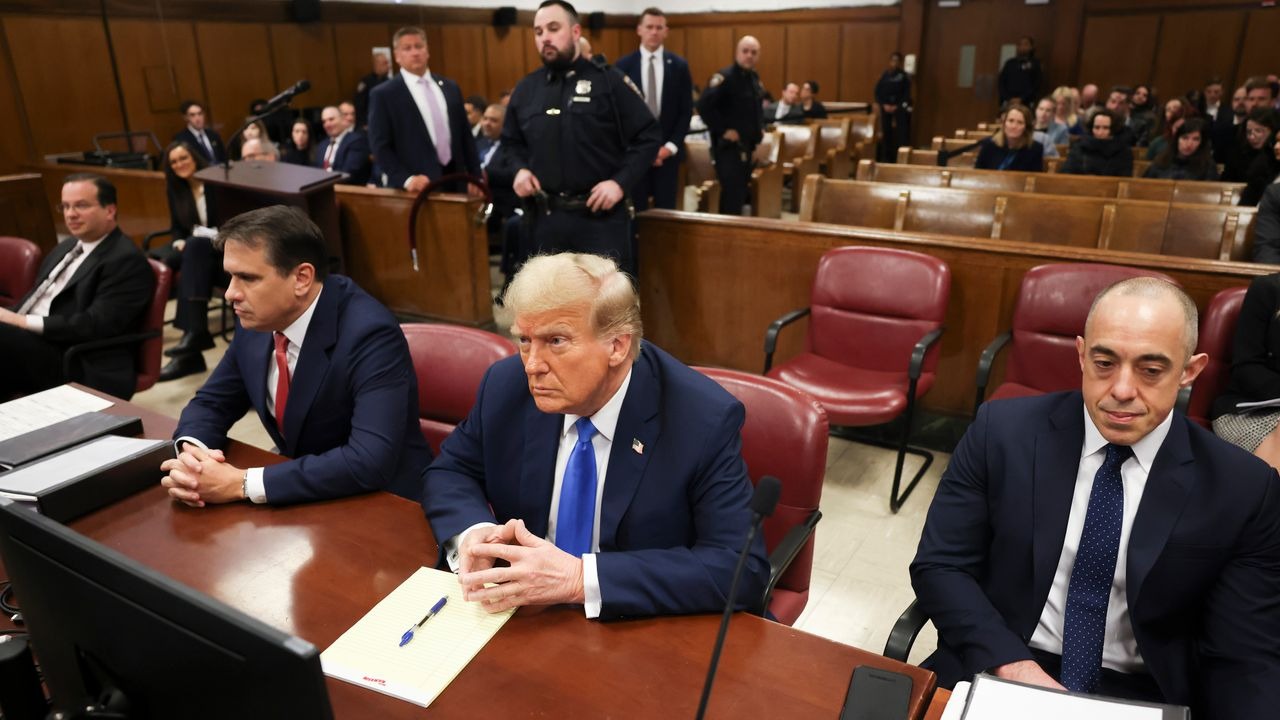The House Judiciary Committee, led by Chair Jim Jordan (R-Ohio), is once again targeting Matthew Colangelo, a senior prosecutor in the Manhattan district attorney’s office, in the ongoing hush money case against former President Trump.
Colangelo, who delivered the opening statement in Trump’s New York trial last week, has been a committee focus since April 2022, when Jordan requested all documents and communications related to his hiring by Manhattan District Attorney Alvin Bragg (D).
The committee’s renewed interest in Colangelo comes after Trump himself took to social media to label the prosecutor a “top Democrat DOJ official.” Despite a gag order preventing Trump from singling out Colangelo or other line prosecutors, the committee is seeking a wide range of information related to Colangelo’s work on the case.
Donald Trump (Credits: NBC New York)
In a letter to the Justice Department on Tuesday, Jordan requested all communications between the DOJ and the Manhattan district attorney’s office related to Trump or his businesses, including any sent by Colangelo.
The letter also seeks Colangelo’s personnel files, including those related to his hiring and departure from the DOJ, as well as all Justice Department files related to its prosecutions of Michael Cohen, Trump’s former fixer.
Jordan has accused Colangelo of having an “obsession with investigating a person rather than prosecuting a crime,” citing his work on cases involving Trump during his time at the New York attorney general’s office and the DOJ. Colangelo was part of a team that sued Trump’s charitable organization in 2018 and was involved in the office’s probe into the Trump Organization, which later led to a $450 million penalty for Trump.
Donald Trump (Credits: ThoughtCo)
The committee’s efforts have been met with resistance from Bragg’s office, which has called the inquiry an “unprecedented campaign to intimidate and attack” its work.
Bragg sued Jordan last year, arguing that Congress cannot supervise state criminal prosecutions or serve subpoenas for personal aggrandizement or punishment. A judge later ruled in Jordan’s favor, ordering a former prosecutor on the case to comply with the subpoena.
